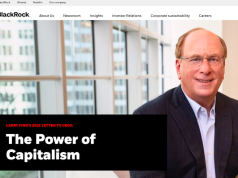The 2025 Investment Day | 2025 Family Office Summits | Family Office Circle
Investment / Alternatives Summit - March / Oct / Nov
Investment Day - March / July / Sept / Oct / Nov
Private Wealth Summit - April / Oct / Nov
Family Office Summit - April / Oct / Nov
View Events | Register
This site is for accredited investors, professional investors, investment managers and financial professionals only. You should have assets around $3 million to $300 million or managing $20 million to $30 billion.
United States SEC Fines – Hydrogen Vehicle Company Hyzon Motors & Executives Fined $25.3 Million for Fraud & Misleading Investors with Non-Existent Hydrogen Power on Video, Investment Advisor AssetMark Fined $18 million for Failure to Disclose Conflict of Interests Including Revenue Sharing Payments from 3rd Party Custodians, Bruderman Asset Management Fined $250,000 for Failure to Disclose Conflict of Interest by Investing $6.1 Million into 3 Companies with Direct Ownership Interests, Charged Podcast Host of The Cash Flow King Matthew Motil for $11 Million Ponzi Scheme
28th September 2023 | Hong Kong
The United States Securities & Exchange Commission (SEC) has fined hydrogen vehicle company Hyzon Motors and executives $25.3 million for fraud & misleading investors with non-existent hydrogen power on video, investment advisor Assetmark fined $18 million for failure to disclose conflict of interests including revenue sharing payments from 3rd party custodians, Bruderman Asset Management fined $250,000 for failure to disclose conflict of interest by investing $6.1 million into 3 companies with direct ownership interests, and charging podcast host of The Cash Flow King Matthew Motil for $11 million Ponzi scheme. More info below:
“ Hydrogen Vehicle Company Hyzon Motors & Executives Fined $25.3 Million for Fraud & Misleading Investors with Non-Existent Hydrogen Power on Video, Investment Advisor AssetMark Fined $18 million for Failure to Disclose Conflict of Interests Including Revenue Sharing Payments from 3rd Party Custodians, Bruderman Asset Management Fined $250,000 for Failure to Disclose Conflict of Interest by Investing $6.1 Million into 3 Companies with Direct Ownership Interests, Charged Podcast Host of The Cash Flow King Matthew Motil for $11 Million Ponzi Scheme “
Caproasia Access | Events | Summits | Register Events | The Financial Centre
The 2025 Investment Day | 2025 Family Office Summits | Family Office Circle
Basic Member: $5 Monthly | $60 Yearly
Newsletter Daily 2 pm (Promo): $20 Monthly | $180 Yearly (FP: $680)
Hong Kong | Singapore
March / July / Sept / Oct / Nov
Private Equity, Hedge Funds, Boutique Funds, Private Markets & more. Join 20+ CIOs & Senior investment team, with > 60% single family offices with $300 million AUM. Taking place in Hong Kong and in Singapore. Every March, July, Sept, Oct & Nov.
Visit | Register here
10th April & 16th Oct Hong Kong Ritz Carlton | 24th April & 6th Nov Singapore Amara Sanctuary Resort
Join 80 single family offices & family office professionals in Hong Kong & Singapore
Links: 2025 Family Office Summit | Register here
March / Oct / Nov in Hong Kong & Singapore
Join leading asset managers, hedge funds, boutique funds, private equity, venture capital & real estate firms in Hong Kong, Singapore & Asia-Pacific at the Investment / Alternatives Summit. Join as delegate, speaker, presenter, partner & sponsor.
Visit | Register here
April / Oct / Nov in Hong Kong & Singapore
Join CEOs, CIOs, Head of Private Banking, Head of Family Offices & Product Heads at The Private Wealth Summit. Join as delegate, speaker, presenter, partner & sponsor.
Visit | Register here
United States SEC Fines

1) Hydrogen Vehicle Company Hyzon Motors & Executives Fined $25.3 Million for Fraud & Misleading Investors with Non-Existent Hydrogen Power on Video
The Securities and Exchange Commission today announced settled fraud charges against Hyzon Motors Inc., an upstate New York-based company that builds hydrogen fuel cell electric vehicles (FCEVs), for misleading investors about its business relationships and vehicle sales before and after a July 2021 merger with a publicly-traded special purpose acquisition company, or SPAC. The SEC also charged Craig M. Knight, Hyzon’s former CEO, and Max C.B. Holthausen, former managing director of Hyzon’s European subsidiary, for their roles in the fraudulent scheme.
According to the SEC’s complaint, Hyzon misrepresented the status of its business dealings with potential customers and suppliers to create the false appearance that significant sales transactions were imminent. The complaint alleges that Hyzon also falsely stated that it had delivered its first FCEV in July 2021, even going as far as posting a misleading video of the vehicle purportedly running on hydrogen, when the vehicle was not equipped to operate on hydrogen power. The complaint further alleges that Hyzon later falsely reported that it sold 87 FCEVs in 2021, when in fact it had not sold any vehicles that year. Knight allegedly was responsible for the false statements about Hyzon’s customer and supplier relationships. Holthausen allegedly was responsible for Hyzon’s false statements about delivery of its first FCEV and for Hyzon’s false reporting of certain FCEV sales.
“Transparency in the form of full, fair, and accurate disclosure is fundamental to the federal securities laws,” said Jason Burt, Regional Director of the SEC’s Denver Regional Office. “The defendants allegedly violated this principle by misleading investors about virtually every aspect of Hyzon’s business. The terms of today’s settlement, if approved by the court, will hold Hyzon and responsible individuals accountable for their misconduct.”
The SEC’s complaint, filed in U.S. District Court for the Western District of New York, charges Hyzon, Knight, and Holthausen with violating the antifraud and other provisions of the federal securities laws. Without admitting or denying the SEC’s allegations, Hyzon, Knight, and Holthausen each consented to permanent injunctions and to pay $25 million, $100,000, and $200,000, respectively, in civil penalties. Knight and Holthausen also agreed to prohibitions from serving as officers or directors of a publicly traded company for a period of five and ten years, respectively. The settlements are subject to court approval. In addition, Knight and Mark Gordon, Hyzon’s former chief financial officer, each reimbursed Hyzon $252,000 and $122,500, respectively, for bonuses they received during the twelve-month period after Hyzon misstated its financial statements. As a result, the SEC did not pursue a clawback action against them under Section 304 of the Sarbanes-Oxley Act of 2002. The SEC’s complaint did not charge Gordon with misconduct. The SEC’s investigation was conducted by David F. Benson, John T. Chisholm, and Anne C. Romero, with assistance from Sharan E. Lieberman and Gregory A. Kasper, and was supervised by Laura M. Metcalfe, Nicholas P. Heinke, and Mr. Burt.
2) Investment Advisor AssetMark Fined $18 million for Failure to Disclose Conflict of Interests Including Revenue Sharing Payments from 3rd Party Custodians
The Securities and Exchange Commission today announced that Concord, California-based registered investment adviser AssetMark Inc. has agreed to pay more than $18 million to settle charges related to undisclosed conflicts of interest involving a cash sweep program operated by its affiliated custodian and its receipt of millions of dollars in revenue sharing payments from third-party custodians. According to the SEC’s order, from at least September 2016 to January 2021, AssetMark failed to provide full and fair disclosure of conflicts of interest arising from its affiliate’s cash sweep program, which transferred, or “swept,” clients’ uninvested cash into interest-earning bank accounts. AssetMark did not advise clients that it helped set the fee that its affiliate custodian received for operating the cash sweep program. The fee reduced amounts of interest paid to those clients. Additionally, the order finds that, from at least January 2016 through August 2019, AssetMark received custodial support payments from some third-party custodians based on assets held in certain no-transaction-fee mutual funds, but it failed to disclose to clients that, in some cases, there were lower-fee share classes with lower expense ratios available to clients which, if used by clients, would not have resulted in payments to AssetMark.
“Investment advisers have a fundamental duty to disclose conflicts between their own financial interests and those of their clients,” said Andrew Dean, Co-Chief of the SEC Enforcement Division’s Asset Management Unit. “Here, AssetMark failed to disclose multiple financial conflicts of interest where AssetMark and its affiliated custodian reaped significant financial benefit from decisions it made.”
The SEC’s order finds that AssetMark violated the antifraud and compliance provisions of the Investment Advisers Act. Without admitting or denying the SEC’s findings, AssetMark consented to a cease-and-desist order requiring it to be censured, comply with certain undertakings, and pay a civil penalty of $9.5 million and disgorgement and prejudgment interest of more than $8.5 million, all of which is to be distributed to harmed investors. The SEC’s investigation was conducted by Rahul Kolhatkar, Heather Marlow, and John Farinacci under the supervision of Jeremy Pendrey, Mr. Dean, and Corey Schuster of the Division of Enforcement’s Asset Management Unit, with assistance from staff from the San Francisco Regional Office’s Division of Examinations, including Jim Marchi, Ricky Flanders, Michael Linvill, and Brad Gaedje.
3) Bruderman Asset Management Fined $250,000 for Failure to Disclose Conflict of Interest by Investing $6.1 Million into 3 Companies with Direct Ownership Interests
The Securities and Exchange Commission today announced that New York-based Bruderman Asset Management LLC (BAM) and its principal, Matthew J. Bruderman, agreed to settle charges related to their failure to disclose the misuse of proceeds raised from investment advisory clients and to the firm’s failure to implement reasonably designed written policies and procedures concerning the disclosure of conflicts of interest. According to the SEC’s order, from at least February 2017 through August 2021, BAM and Bruderman advised at least 13 clients to invest at least $6.1 million in three companies in which Bruderman had decision-making authority and significant ownership interests. The SEC’s order finds that BAM and Bruderman failed to disclose to the clients that their investments would be temporarily used for other purposes, such as to fund BAM’s payroll and to repay loans owed to Bruderman or to the other companies with which he was affiliated. According to the SEC’s order, BAM, through Bruderman, also failed to implement reasonably designed written policies and procedures concerning the disclosure of conflicts of interest.
“Full disclosure of conflicts of interest is a central safeguard for investors who place their trust in investment advisers,” said Sheldon L. Pollock, Associate Director of the SEC’s New York Regional Office. “Our program remains focused on ensuring that investment advisers make full and complete disclosures in order to increase investor confidence.”
Without admitting or denying the SEC’s findings, BAM and Bruderman each consented to an order requiring them to cease and desist from committing or causing violations of various provisions of the Investment Advisers Act of 1940, imposing a censure, and ordering them to pay, jointly and severally, a civil penalty of $250,000. The SEC’s investigation was conducted by Megan R. Genet, Bari R. Nadworny, Elizabeth Baier, George O’Kane and Steven G. Rawlings under the supervision of Mr. Pollock. The SEC examinations that led to the investigation were conducted by Lori Rutkowski, Adam Bacharach, Michael E. Kress Jr. CFA, David Jaffe, Lourdes Caballes, and Michael Rufino.
4) Charged Podcast Host of The Cash Flow King Matthew Motil for $11 Million Ponzi Scheme
The Securities and Exchange Commission today charged Matthew Motil, host of the podcast, “The Cash Flow King,” for fraudulently raising approximately $11 million from more than 50 investors in a Ponzi scheme involving notes that were purportedly backed by residential properties. According to the SEC’s complaint, Motil, of North Olmsted, Ohio, defrauded investors with promises of low-risk, high-return promissory notes purportedly collateralized by first mortgages on homes located throughout Ohio. The SEC’s complaint alleges that Motil promoted the investments on his website, inviting potential investors to “be a real estate investing badass!,” and on his podcast, where he assured investors that the investments he offered were safe and backed by a “first lien position” on the underlying real estate assets. According to the SEC’s complaint, Motil told investors that he would pay the investors returns on their investments from profits from renovating, reselling, refinancing, and renting the properties. As the complaint alleges, however, Motil did not in fact secure first lien positions for the investors as promised and regularly sold multiple promissory notes he claimed were secured by the same property to multiple investors. In one instance, Motil allegedly sold more than $1 million of promissory notes to 20 investors, each note supposedly collateralized by the same property he had acquired for $47,000. Rather than renovate the properties, Motil allegedly used investor money to make Ponzi payments to previous investors and for his own extravagant personal expenses, including to rent a lakeside mansion, purchase courtside season tickets to NBA games, and make $400,000 in credit card payments for his wife, Amy Motil, who is named as a relief defendant.
“We allege that Motil used podcasts and social media platforms to bolster his reputation as an investing expert while fraudulently targeting investors’ hard-earned retirement assets, including, in at least one instance, almost the full balance of an investor’s self-directed IRA,” said Mark Cave, Associate Director of the Division of Enforcement. “We are committed to holding those who prey on others accountable for their unlawful conduct.”
The SEC’s complaint, filed in U.S. District Court for the Northern District of Ohio, charges Motil with violating the registration and antifraud provisions of the Securities Act of 1933 and the antifraud provisions of the Securities Exchange Act of 1934. The complaint seeks injunctive relief, disgorgement plus prejudgment interest, civil money penalties, and an officer and director bar. The SEC’s Office of Investor Education and Advocacy has issued an Investor Alert with tips on how investors can avoid become a victim of fraud in self-directed IRAs. The SEC’s ongoing investigation is being supervised by Jeff Leasure and Mr. Cave. The SEC’s litigation will be led by John Timmer under the supervision of James Carlson. The SEC acknowledges the assistance of the U.S. Trustee’s Office, the U.S. Attorney’s Office for the Northern District of Ohio, and the Ohio Division of Securities.
For Investment Managers, Hedge Funds, Boutique Funds, Private Equity, Venture Capital, Professional Investors, Family Offices, Private Bankers & Advisors, sign up today. Subscribe to Caproasia and receive the latest news, data, insights & reports, events & programs daily at 2 pm.
Join Events & Find Services
Join Investments, Private Wealth, Family Office events in Hong Kong, Singapore, Asia-wide. Find hard-to-find $3 million to $300 million financial & investment services at The Financial Centre | TFC. Find financial, investment, private wealth, family office, real estate, luxury investments, citizenship, law firms & more. List hard-to-find financial & private wealth services.
Have a product launch? Promote a product or service? List your service at The Financial Centre | TFC. Join interviews & editorial and be featured on Caproasia.com or join Investments, Private Wealth, Family Office events. Contact us at angel@caproasia.com or mail@caproasia.com
Caproasia.com | The leading source of data, research, information & resource for financial professionals, investment managers, professional investors, family offices & advisors to institutions, billionaires, UHNWs & HNWs. Covering capital markets, investments and private wealth in Asia. How do you invest $3 million to $300 million? How do you manage $20 million to $3 billion of assets?
The 2025 Investment Day | 2025 Family Office Summits | Family Office Circle
2020 List of Private Banks in Hong Kong
2020 List of Private Banks in Singapore
2020 Top 10 Largest Family Office
2020 Top 10 Largest Multi-Family Offices
2020 Report: Hong Kong Private Banks & Asset Mgmt - $4.49 Trillion
2020 Report: Singapore Asset Mgmt - $3.48 Trillion AUM
For Investors | Professionals | Executives
Latest data, reports, insights, news, events & programs
Everyday at 2 pm
Direct to your inbox
Save 2 to 8 hours per week. Organised for success
Register Below
Get Ahead in 60 Seconds. Join 10,000 +
Save 2 to 8 hours weekly. Organised for Success.
Sign Up / Register
Please click on desktop.
Caproasia Users
- Manage $20 million to $3 billion of assets
- Invest $3 million to $300 million
- Advise institutions, billionaires, UHNWs & HNWs
Caproasia Platforms | 11,000 Investors & Advisors
- Caproasia.com
- Caproasia Access
- Caproasia Events
- The Financial Centre | Find Services
- Membership
- Family Office Circle
- Professional Investor Circle
- Investor Relations Network
Monthly Roundtable & Networking
Family Office Programs
The 2025 Investment Day
- March - Hong Kong
- March - Singapore
- July - Hong Kong
- July - Singapore
- Sept- Hong Kong
- Sept - Singapore
- Oct- Hong Kong
- Nov - Singapore
- Visit: The Investment Day | Register: Click here
Caproasia Summits
- The Institutional Investor Summit
- The Investment / Alternatives Summit
- The Private Wealth Summit
- The Family Office Summit
- The CEO & Entrepreneur Summit
- The Capital Markets Summit
- The ESG / Sustainable Investment Summit
Contact Us
For Enquiries, Membershipmail@caproasia.com, angel@caproasia.com
For Listing, Subscription
mail@caproasia.com, claire@caproasia.com
For Press Release, send to:
press@caproasia.com
For Events & Webinars
events@caproasia.com
For Media Kit, Advertising, Sponsorships, Partnerships
angel@caproasia.com
For Research, Data, Surveys, Reports
research@caproasia.com
For General Enquiries
mail@caproasia.com
a financial information technology co.
since 2014









































